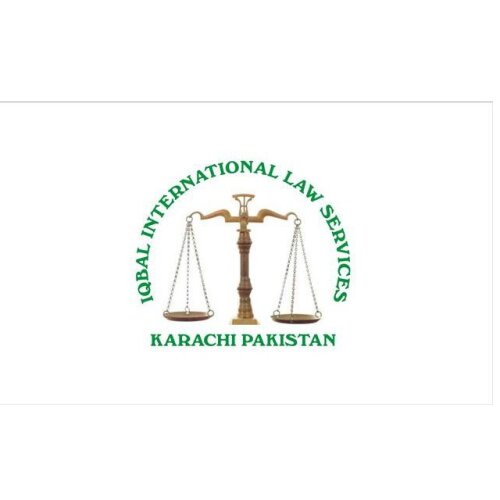Best Collaborative Law Lawyers in Karachi
Share your needs with us, get contacted by law firms.
Free. Takes 2 min.
Free Guide to Hiring a Family Lawyer
List of the best lawyers in Karachi, Pakistan
About Collaborative Law in Karachi, Pakistan
Collaborative Law is a legal process increasingly gaining popularity in Karachi, Pakistan, especially in matters involving family disputes, contracts, and other civil issues. It involves resolving legal disputes amicably without going to court. In this process, both parties work with their collaboratively trained lawyers and other professionals, like financial advisors or mental health experts, to negotiate a settlement. The primary goal is to achieve a win-win outcome that satisfies all parties involved without the adversarial nature of traditional litigation.
Why You May Need a Lawyer
Seeking collaborative law assistance may be beneficial in various situations. For instance, individuals going through a divorce who wish to keep the process amicable while resolving child custody and asset division may find collaborative law advantageous. Business partners looking to resolve disputes or renegotiate terms without damaging professional relationships may also benefit. The presence of a trained lawyer ensures that the legal nuances are fully understood, and mutually beneficial solutions are crafted.
Local Laws Overview
In Karachi, and Pakistan as a whole, there is a legal framework supportive of alternative dispute resolution methods like Collaborative Law. Karachi's legal landscape allows settlements reached through collaborative law to be formalized into legally binding agreements. Important aspects include the recognition of such agreements by local courts, their enforceability under Pakistani contract law, and adherence to local personal laws where applicable. The process also emphasizes confidentiality and voluntary participation, aligning with both Sharia and civil legal principles.
Frequently Asked Questions
What is the difference between Collaborative Law and traditional litigation?
Collaborative Law is non-adversarial and focuses on negotiation, whereas traditional litigation is adversarial, often involving a public court battle where a judge makes the final decision.
Do I still need a lawyer in Collaborative Law?
Yes, each party needs a trained collaborative lawyer to guide the process, ensure legal compliance, and represent their interests.
Can any lawyer handle a collaborative case?
No, lawyers need specific training in collaborative law techniques and strategies to effectively navigate these cases.
What happens if the collaborative process fails?
If the process fails, parties may proceed to traditional litigation, but they typically cannot use the same lawyers since those lawyers agreed not to represent the clients in court.
Is Collaborative Law legally binding?
Yes, once an agreement is reached and properly documented, it is enforceable under Pakistani contract law, provided all parties comply with local legal requirements.
How long does a Collaborative Law process take?
The duration varies by case complexity, but it generally takes less time than court litigation since parties are working towards mutual agreement outside of court schedules.
Is collaborative law confidential?
Yes, the process is confidential. Information disclosed in the collaborative sessions is not admissible in court should the process not lead to a resolution.
Can collaborative law be used in business disputes?
Absolutely, it's applicable in resolving business conflicts amicably, preserving professional relationships, and reaching a consensus without damaging litigation.
How does collaborative law benefit me personally?
It reduces stress, saves time and money, and gives you control over the outcome as compared to litigation, where a judge decides your case.
What type of disputes is not suitable for collaborative law?
Cases involving domestic violence, significant power imbalances, or when one party is unwilling to negotiate may not be suitable for this approach.
Additional Resources
For more information on Collaborative Law in Karachi, you can contact local bar associations, such as the Sindh Bar Council. Non-governmental organizations advocating alternative dispute resolution, like the Pakistan Institute of Legislative Development and Transparency (PILDAT), also offer resources. The Center for Conflict Resolution Pakistan (CCRP) is another resource that focuses on alternative dispute resolutions in the region.
Next Steps
If you're considering collaborative law for your legal issue, the first step is to identify lawyers in Karachi trained in this field. You can begin by consulting with the law firms known for alternative dispute resolution. Prepare all relevant documentation detailed to your case, and communicate openly with your prospective lawyer about your goals. The collaborative process demands transparency and goodwill, so ensure you're prepared for open dialogue.
Lawzana helps you find the best lawyers and law firms in Karachi through a curated and pre-screened list of qualified legal professionals. Our platform offers rankings and detailed profiles of attorneys and law firms, allowing you to compare based on practice areas, including Collaborative Law, experience, and client feedback.
Each profile includes a description of the firm's areas of practice, client reviews, team members and partners, year of establishment, spoken languages, office locations, contact information, social media presence, and any published articles or resources. Most firms on our platform speak English and are experienced in both local and international legal matters.
Get a quote from top-rated law firms in Karachi, Pakistan — quickly, securely, and without unnecessary hassle.
Disclaimer:
The information provided on this page is for general informational purposes only and does not constitute legal advice. While we strive to ensure the accuracy and relevance of the content, legal information may change over time, and interpretations of the law can vary. You should always consult with a qualified legal professional for advice specific to your situation.
We disclaim all liability for actions taken or not taken based on the content of this page. If you believe any information is incorrect or outdated, please contact us, and we will review and update it where appropriate.

















